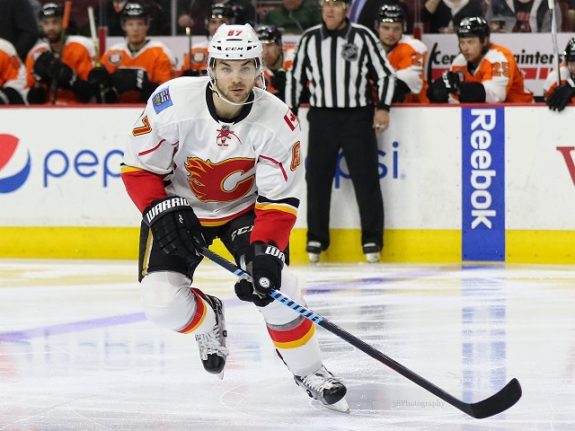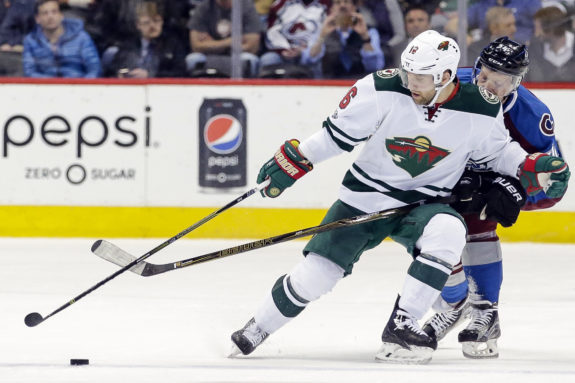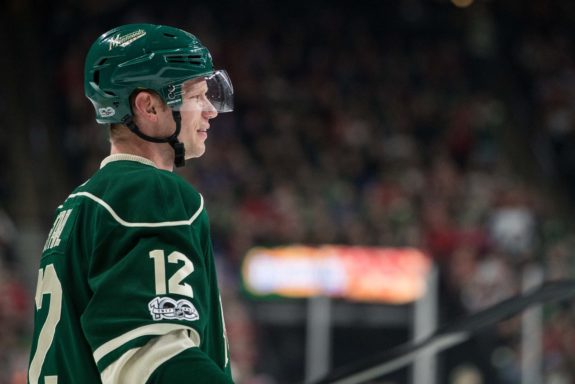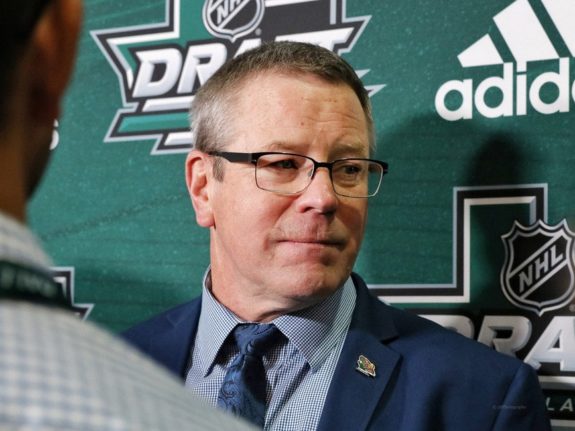In the aftermath of the NHL trade deadline, plenty is coming out with regard to a hypothetical deal involving Minnesota Wild forward Jason Zucker that fell through. What’s become most apparent though is the Wild should be grateful it did.
The Zucker Trade to Flames that Wasn’t
Of course, the thought process here is that if the Wild tried to trade Zucker once they might again (even if he has a no-trade clause coming into effect soon). If they do end up going that route, the only hope would be they get a bigger return. Rumors are such that Zucker was being sent to the Calgary Flames for Michael Frolik and a pick.

The Flames were reportedly disappointed (to be polite) the trade fell through. However, it’s assumed it would have been hard for the Flames to take on the remainder of his five-year, $27.5 million contract even with Frolik’s $4.3 million cap hit going the other way.
Even if the Flames are 2-4 after the deadline (including a 4-2 loss to the Wild), maybe it’s a blessing in disguise the deal didn’t work out, at least for the long term. That’s probably truer for the Wild, who have successfully hung on to a Western Conference wild-card spot with a 3-1-2 record since Feb. 25.
Zucker Helps Wild Turn it Around
In fact, since general manager Paul Fenton started retooling his roster in the lead-up to the trade deadline, by acquiring Ryan Donato from the Boston Bruins for Charlie Coyle, the Wild are 6-1-2. Donato actually has nine points in as many games as a member of the Wild, but his chemistry with Zucker and Eric Staal is a big reason for the team’s success.
Earlier this week, Zucker actually scored his second-career hat trick en route to an upset 3-0 victory over the league-leading Tampa Bay Lightning (with Donato assisting on two of the goals). Over the last eight games, Zucker has just as many points and six goals, which enabled him to hit 20 for the fourth time in his career.

So, even though Zucker’s overall production is off the career-high 64 points he scored last season, there’s a good case to be made he has much more upside. After all he is just a 27-year-old, who’s theoretically in his prime.
Considering the four-year age difference between him and Frolik and the latter’s mere 23 points, the Wild would effectively have been gambling on the draft pick panning out for the hypothetical deal to have made sense. And, because the Wild’s draft record over the last decade has been mediocre to be kind, it’s probably for the best that the Wild actually hang onto one of their few picks that has panned out.
Zucker’s production may be significantly down, but so is the Wild’s as a team to 2.75 goals per game (ranked No. 25) from 3.05 (ranked No. 11) last season. Maybe it becomes an argument similar to that of the chicken and the egg, where the Wild’s production may be lower because Zucker’s is. Of course, considering Zucker is seen more as a key secondary-scoring contributor, it may make more sense to take a look at the team’s reigning leading scorer in Staal, who scored 76 points last year, but is on pace to finish with 20 less this one.
Staal vs. Zucker
The simple fact of the matter is, if Staal is worth signing to an extension when his production is down just as much as Zucker’s at age 34, Zucker is worth keeping around until the point at which he’ll be just 31. Granted, Zucker’s making more money and it must be disappointing for the Wild that he has failed to reward the faith they displayed in him with consistent production.

It should be noted though that two of Zucker’s closest contract comparables are Lightning forwards J.T. Miller and Ondrej Palat, both of whom are either producing at the same or a lower rate. If the Lightning can lead the league with a couple of contracts similar to Zucker’s, it begs the argument that maybe he’s not the problem here.
The fact that two other of Zucker’s closest contract comparables are Mikael Granlund and Nino Niederreiter perpetuates that theory. Both of those contracts had been signed by Fenton’s predecessor, Chuck Fletcher. Obviously, neither player is still with the team. That isn’t to say they’re bad players or the contracts were necessarily unwise decisions, but that there is a pattern here.
Fenton’s Head Needs a Shake
It’s of course Fenton’s right to clear the books of old contracts and shape the team the way he wants. The only problem is Zucker’s deal was his signing, not eight months ago, soon after he first came aboard as general manager. Maybe there’s a degree of buyer’s remorse, but there shouldn’t be. Zucker is an in-his-prime, proven 20-goal scorer, whose deal is in line with the going rate for a talent of his caliber.

Maybe the Wild aren’t ready to contend and are simpy looking to rebuild, but a few things, though: Head coach Bruce Boudreau has already guaranteed a playoff berth for starters. Meanwhile, there are no guarantees the Wild would be able to translate that pick they would have reportedly gotten from the Flames into a player of Zucker’s caliber.
Trading Zucker away just to secure a draft pick would be like packing up and moving next door to a freshly built house. All you’re doing is taking a chance there’s nothing wrong with the new place, when the one you live in now is perfectly fine, maybe with a slightly obscured view. Hopefully the Wild take this opportunity to reasses the situation and realize the grass is plenty green on the side they’re on currently, at least with regard to Zucker.